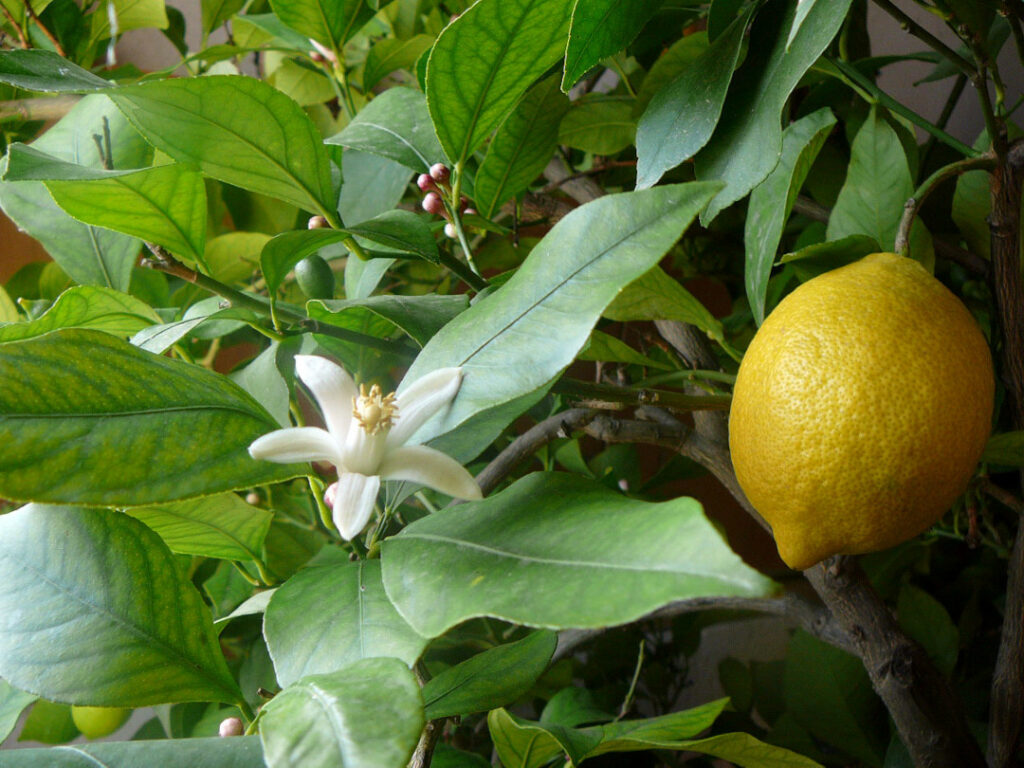
Portugal
Lemon
Citrus limon

General Description/Cultural Significance
Sharing the Iberian Peninsula with Spain and sitting on the southwest coast of Europe, Portugal has varied habitats and a mild temperature year round which allows for a large range of plant life to flourish. The most important plant for Portuguese culture, food, and identity is the lemon. The scent is found in many traditional parts of Portuguese life. Chefs use the lemon juice to flavor many dishes and the zest is commonly used in Portuguese pastries. Lemon oil is a common ingredient in cosmetic products and is thought to be a very attractive scent. In addition, lemons are a cultural staple in wedding ceremonies for those living in the Minho region of Portugal. Traditionally, during the wedding a lemon and an apple are hung from an arch and then removed by the bride and groom. The bride presents the lemon to the groom as a symbol of the long lasting savor of their marriage and the groom presents the apple to the bride as a symbol of preventing future temptations.
Lemon has many practical uses in Portuguese culture as well. It is high in vitamin C, antioxidants, and flavonoids which provide many medical benefits. In Portugal, a specific kind of lemon tea is brewed to treat colds and sore throats. It is prepared by steeping the rind of a lemon in nearly boiling water for twenty minutes and then sweetening the tea with honey or sugar. The bright yellow color of the lemon is mirrored in its energizing citrus scent. The flower of the lemon tree also has a sweet and lifting aroma with soft, beautiful white petals. These sweet, iconic smells are woven into Portuguese culture and have become a key part of the identity of the nation.
Climate Change/Conservation Status
Portugal is particularly vulnerable to climate change in relation to extreme weather events such as droughts, floods, and heat waves. In addition, rising sea levels are a significant threat because the majority of the Portuguese population lives on the coast. In fact, Portugal is one of the most vulnerable countries in all of Europe for the harsh impacts of climate change. In certain areas of the country changes in rainfall and other extreme weather events have caused agricultural yields to decrease by two-thirds, while the area burned by forest fires simultaneously tripled. The heat waves, water shortages, and coastal flooding are affecting an estimated tens of millions of people in Portugal.
The lemon tree is at great risk to these changes as well. Climate change impacts such as rising temperatures are disrupting the natural blossoming cycle of the lemon tree causing “reduced vegetative growth, abortion fruit set, and increase fruit dropping before harvesting.” The Minister for the Environment of Portugal is aiming to make the country carbon neutral by 2050. On the subject of climate change impacting his country he said, “more than saving the planet, we are saving ourselves as a species. In fact, we are not able to withstand this increase in temperature and what it causes on a daily basis.”
Sources
Climateknowledgeportal.worldbank.org. 2022. World Bank Climate Change Knowledge Portal. [online]
IEA (2021), Portugal Climate Resilience Policy Indicator, IEA, Paris.
Theportugalnews.com. 2022. Portugal one of the most vulnerable to climate change. [online]

